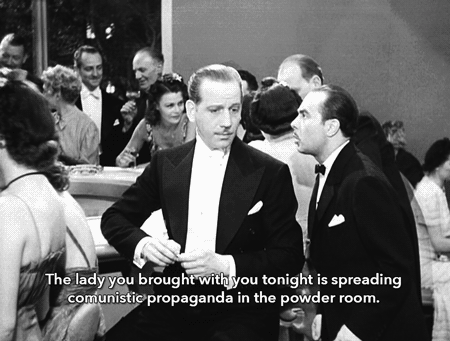 Danish director Lars von Trier is nothing if not a rabble-rouser. His best-known films, Breaking the Waves, Dancer in the Dark and Dogville have inspired both critical praise and accusations of sadistic misogyny; in each, the female central character suffers brutally, as events seemingly conspire against her, agonizing twist after sickening injustice. After watching the latest episode of Showtime’s Weeds, another half hour in which every possible thing goes wrong for our noble heroine, I wondered: is von Trier secretly manning the cameras?
Danish director Lars von Trier is nothing if not a rabble-rouser. His best-known films, Breaking the Waves, Dancer in the Dark and Dogville have inspired both critical praise and accusations of sadistic misogyny; in each, the female central character suffers brutally, as events seemingly conspire against her, agonizing twist after sickening injustice. After watching the latest episode of Showtime’s Weeds, another half hour in which every possible thing goes wrong for our noble heroine, I wondered: is von Trier secretly manning the cameras?
That’s silly, of course, since Weeds breaks just about every rule of von Trier’s “Dogme 95” filmmaking philosophy. While Dogme’s rules dictate abandonment of “artifice” like props or music, Weeds is a regular TV show, with sets and lighting and stuff. Its dark comedy and satire (I can’t drive through Castaic any more without laughing) separates it from von Trier’s deadly serious productions. But at its center is a woman, Nancy, who is thrust into a life of crime: her husband dies unexpectedly, and she turns to a dangerous drug-dealing lifestyle to provide for her family. She’s threatened at gunpoint almost daily, a new boyfriend turns out to be a DEA agent who eventually betrays her, and a deal to protect her family from a biker gang eventually results in her whole suburb burning to the ground. On Monday’s episode, Nancy’s brother got lost on the Mexican border, an old nemesis showed up to entrap her, and just when things seemed okay, they got crazy again: her drug dealing gang installed her as manager of a maternity shop at a mall, but it turns out the back room hides a tunnel to some sort of secret gang headquarters. How much is one woman supposed to take? Is Weeds just Breaking the Waves with pot instead of sex?
Maybe a better question would be, does the horrible suffering of your female lead necessarily mean your work is misogynistic? While reviewers like Salon’s awesome Stephanie Zacharek accused von Trier of “just getting his jollies” from Dancer in the Dark (and Björk herself swore off acting afterwards), others have found von Trier’s films moralistic, rather than misogynistic, and ultimately, indictments of society. Is Weeds a morality play? Nancy has “sinned,” for sure, and in the latest episode, her “addiction” to the drug dealing lifestyle is made clear: when presented with her maternity shop assignment, she refuses at first, saying she “owes it to her family” to make the better money dealing provides, since she’s “put them through a lot.” But when you say “a lot,” you mean, “stuff that’s happened because of the dealing,” right?
So, Nancy’s a sinner, and perhaps the central question of Weeds is how much punishment Nancy will receive for her sins. However, just as in von Trier’s work, society doesn’t escape unscathed either: if Nancy is a sinner, then what about oppressive, troubled suburbia, corrupt religions, that big wall separating us from Mexico? It’s the screwed-up world that made her this way! In a sense, Nancy is made to suffer for our sins, and by watching, we implicate ourselves, fearing and hoping to see how low she’ll go, how much she’ll get hurt, and if redemption is even possible. But since there’s comedy, it’s a lot easier to watch than three hours of Björk torture. (Björture?) Von Trier should take a hint from Weeds: if he wants to teach us a lesson, maybe a few chuckles will keep us from noticing.



